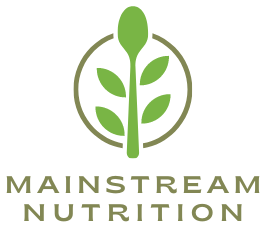I ask why collagen supplements don’t work. Collagen supplements have been touted as the solution to many of our beauty and health problems, from fine lines to joint pain, and have become a popular item in the wellness industry. According to a report the Collagen Supplement Market size surpassed USD 1 billion and sales are predicted to continue to increase. However, the effectiveness of consuming collagen through supplements for vanity and health purposes is still uncertain, mostly because limited research has been conducted on this topic so far.
What are collagen supplements?
Collagen supplements are formulated with easily absorbable collagen fragments, including hydrolyzed collagen and collagen peptides. Additionally, these supplements often feature essential nutrients like zinc, biotin, and vitamin C, which are crucial for promoting healthy skin and hair. However, collagen is a complex protein that can only be absorbed by the body when it is broken down into smaller amino acids. After collagen peptides are ingested and reach the stomach, they are broken down into amino acids, which become part of a larger pool of amino acids that are utilized to create various proteins essential for bodily functions. These proteins may or may not include collagen.
The Science Behind Collagen Supplements
While collagen is an important part of the skin and provides structural support and elasticity, which results in youthful and healthy-looking skin, after age 20, people start losing their body’s collagen supply each year. As the production of collagen breaks down, it can result in wrinkles, sagging skin, and fine lines. While some studies suggest that taking collagen supplements may enhance skin hydration and elasticity, as well as improve muscle mass, the findings from early research on the potential benefits of consuming extra collagen are too restricted to be considered definitive or broadly accepted.
Collagen supplements face a significant challenge in that they cannot selectively target specific areas of the body, and there is no guarantee that the body will recognize the ingested collagen. Once collagen is consumed, it is broken down and absorbed into the bloodstream, where it is distributed to various body parts as required. As a result, it is difficult to predict whether the consumption of collagen will have a significant impact on the body or, more specifically, the skin.
Are there any risks of using collagen supplements?
Collagen supplements are generally considered safe, but there are no FDA guidelines for determining safe levels of collagen consumption. These supplements are typically derived from animal bones and tissues, raising concerns about potential exposure to heavy metals and toxins. Some collagen products also contain eggs or shellfish, which could trigger an allergic reaction. Studies suggest that these oral supplements may cause mild side effects like nausea, diarrhea, and stomach upset. Collagen supplements typically provide 2.5 to 15 grams of collagen, which can also be obtained by consuming protein-rich foods. However, excessive protein intake can have adverse effects on kidney function and other chronic health issues.
Can you boost collagen naturally?
Many protein-rich foods contain amino acids that can naturally enhance the body’s collagen levels. However, similar to collagen supplements, these amino acids are utilized by the body to generate any type of protein, which may or may not include collagen. Therefore, consuming protein-rich foods can supply amino acids, but not necessarily the specific ones required for producing collagen. Consuming a well-rounded, nutritious diet that provides the body with a range of amino acids to fulfill its protein requirements is vital. Factors in one’s lifestyle that may affect collagen production include exposure to UV rays from the sun, smoking, a high-sugar diet, and insufficient sleep.
Taking Collagen Supplements Worth it?
Despite being costly, collagen supplements offer no guarantee of increasing collagen levels or improving the health of our skin, hair, nails, bones, or joints. To boost collagen naturally, make healthy lifestyle choices and eat a balanced diet to ensure you get the nutrients you need, including the amino acids required for making collagen and other essential proteins. Consult with your doctor if you are still curious about taking oral collagen supplements.
My Thoughts
As collagen supplements become more popular in the wellness industry, more research is likely to be conducted on their safety and effectiveness. It is possible that the FDA may regulate collagen supplements more strictly, and supplement manufacturers may be required to provide more accurate nutritional information on labels. Additionally, people may become more interested in natural ways to boost their collagen levels, such as incorporating collagen-boosting foods into their diets, rather than relying on supplements. This shift towards more natural and sustainable approaches to health and wellness has been gaining momentum in recent years, and is likely to continue in the future.

